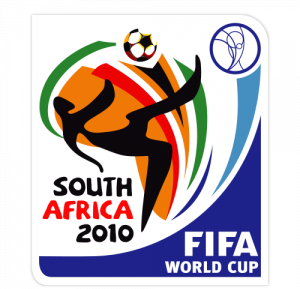Branding Lessons from the 2010 World Cup

The 2010 World Cup has brought a lot of attention to the game of soccer. Increased media coverage and a strong performance by the United States has brought an influx of new fans to the game. With so much attention focused on this event, I thought I would draw some comparisons between the World Cup and personal branding.
Three parallels between personal branding and some of the early, exciting games of the World Cup:
1. When you make mistakes, transparency is the best approach
Everyone makes mistakes; it is part of being human. You can strive for perfection, but no matter what there will be a time when something happens that wasn’t supposed to. How you react establishes where you have some control.
In their second game, the United States had a tough moment when referee Koman Coulibaly made a controversial call to disallow the winning goal for the United States. Many replays showed what commentators and fans alike agreed was a goal minus any apparent foul which led to a pretty large miscall by the referee.
Over the next few days, experts and analysts still were trying to understand the call that was made, since there was no clear explanation by the referee. In fact, the governing body of international soccer stated that there would be no official statement made to explain what the referee saw. Eventually, he was replaced for the remaining games, and he has essentially branded himself as someone who made a horrible mistake in front of billions.
The best brands use social media to react in a quick manner to either debunk misconceptions or to fix mistakes that they have made. In researching for this posting, I found a collection of 136 social media policies centralized in one place.
Large organizations, such as The American Red Cross, IBM, BBC, Coca-Cola, and Intel, were represented in this group and the majority of these organizations specifically address the aspect of making mistakes. These organizations made it clear that mistakes should be dealt with in a timely and transparent manner.
When you encounter situations like this, think about how you want to be remembered.
2. How you treat others matters
When you set out to develop your brand, you are creating a presence so that anyone who comes across your name can get a sense of what you stand for.
You impact your brand by what you put out into the world through social media, your resume, and your accomplishments. However, your personal brand can also be affected by how you treat people. Authors at studentbranding.com have touched upon this topic here and here.
A great example of this is a player from France named Nicolas Anelka. Nicolas Anelka is a champion. This year alone he won a title at the highest level with his professional team before joining the French National team. He is known as a high quality player who was in the starting team for France, which made the final match in the previous World Cup.
However, this year the French team underachieved. During halftime of their second game, Anelka got into a shouting match with his coach and was dismissed from the team. Since the World Cup happens ever four years, Anelka’s international career is over.
Through this quick moment on such a large stage, Anelka will probably be remembered for things which overshadow his larger body of work. This makes sense because no matter how great you are at something, if people believe that you are not someone they would like to work with, it will be challenging to change that impression.
This is especially true if you gain a reputation as someone who is not a team player or someone who is rude. How you handle situations can make the difference between you being viewed as a prima donna or an all-star.
3. You don’t want to become “noise”
“Noise” is a term often used to describe the sheer volume of information that is now being spread via social media. People usually refer to noise as being unnecessary or repetitive information with little value. In a way, it is the “spam” of social media.
I am sure that you have come across information or sources,where you just started to tune it out after you read a few pieces that didn’t seem to meet your needs. If you have heard only one thing about the World Cup this year, it just might be the vuvuzela horns that sound like a swarm of bees. The vuvuzela is controversial because it drowns out the announcers on television as well as the beautiful chants that fans sing during matches.
We often have to sift through the “noise” on tools like Twitter, which make cell phone apps and tools like TweetDeck, Seesmic, Twitterfeed, or even the Lists function on twitter.com so valuable. It would be extremely challenging to sift through the noise if we didn’t have some sort of filter.
Before you hit the send, reply, or post button make sure that you are contributing in a way that brings value to the community that you are participating in.
[This post was originally written for the Student Branding Blog.]